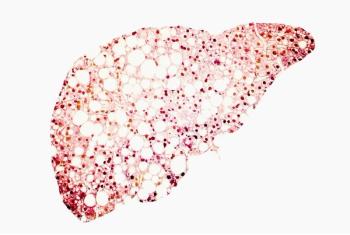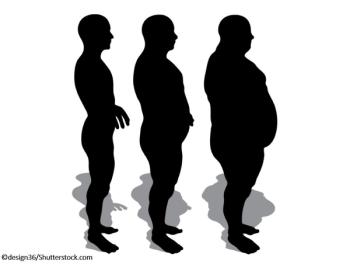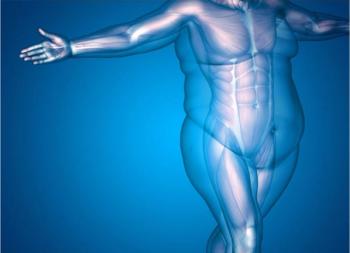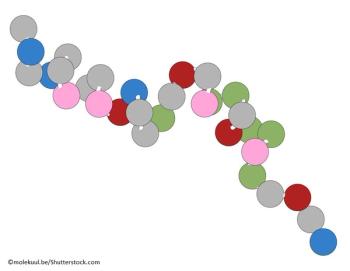
In individuals with chronic coronary disease, the presence of diabetes increased the rate of death by 38% during a 5-year follow-up period in analysis of a worldwide patient registry.

In individuals with chronic coronary disease, the presence of diabetes increased the rate of death by 38% during a 5-year follow-up period in analysis of a worldwide patient registry.

Study authors looked for the first time at the impact of bariatric surgery on incidence of all-cause and obesity-related cancer in patients with severe obesity and fatty liver disease.

Asthma of obesity affects more than 10% of men and 14% of women with obesity. Our interview with researcher Anne Dixon, MD, sheds light on this poorly appreciated asthma phenotype.

Obesity medicine specialist, Karli Burridge, PA-C, MMS, discusses how and why physicians can further support and engage patients with obesity through the art of communication.

ENDO 2021: Patients with severe obesity hospitalized for COVID-19 were twice as likely to require ICU admission vs those with normal BMI, according to new findings.

A lifestyle intervention targeting women with obesity and infertility is more effective in increasing the pregnancy rate vs fertility treatments, suggests a new study presented at ENDO 2021.

ENDO 2021: An investigational once-weekly insulin formulation was found as effective as daily basal insulin injection for glucose control with lower rates of hypoglycemia and less weight gain.

ENDO 2021: Obese individuals treated with semaglutide 2.4 mg vs placebo demonstrated improvements in body composition paralleling weight loss that may reduce risk for cardiometabolic disease.

More than half of adults with obesity who received once-weekly semaglutide lost 15% of body weight, according to the recently published STEP 1 study.

A new modeling study estimates that 64% of US COVID-19 hospitalizations were attributable to at least 1 of 4 pre-existing cardiometabolic conditions.

New research suggests obesity is responsible for 30%-53% of new type 2 diabetes cases in the US annually.

Obesity Medicine Association President Craig Primack, MD, reminds PCPs that stress management is a key to good self care for everyone and offers tips to share with patients.

Physical activity cannot compensate adequately for the negative impact of excess body weight on cardiometabolic health.

Interviews with obesity experts, short tests of clinical and guideline knowledge, and news briefs topped the popular content on obesity on Patient Care in 2020.

Obesity affects nearly 20% of US children, impacting both current and future health. The 2020 update of the Pediatric Obesity Algorithm provides expert treatment guidance.

Among patients with obesity who contracted COVID-19, those with a history of bariatric surgery had significantly decreased odds of hospitalization, a new study finds.

With the updated label, liraglutide is the first FDA-approved therapy for adolescents with obesity in over a decade.

Results of a new study suggest that remission of obesity-related complications in adolescents who underwent bariatric surgery is not dependent on sustained weight loss.

Americans with obesity and overweight are at greater risk for more severe COVID-19. Clinicians can support them best by asking how they can help.

Once-weekly semaglutide 2.0 mg vs 1.0 mg led to statistically significant, superior reductions in A1c and weight in type 2 diabetes patients not at goal, study finds.

Obesity, a complex chronic disease in itself, underlies many of the fatal cardiac and cardiometabolic diseases of the 21st century. Find a wide collection of expert guidance in this collection.

Video: Obesity expert Dr Louis Aronne outlines the role of medication in obesity treatment and says primary care is absolutely the place to begin.

Obese patients hospitalized with COVID-19 had lower levels of inflammation biomarkers but outcomes similar to non-obese patients with elevated levels of those biomarkers.

New research presented at ObesityWeek®2020 showed no statistical difference in severe COVID-19 outcomes between normal and obese patients.

Patients with obesity who utilized telemedicine services during quarantine achieved an average 2 kg weight loss, according to new research presented at the ObesityWeek®2020 virtual meeting.